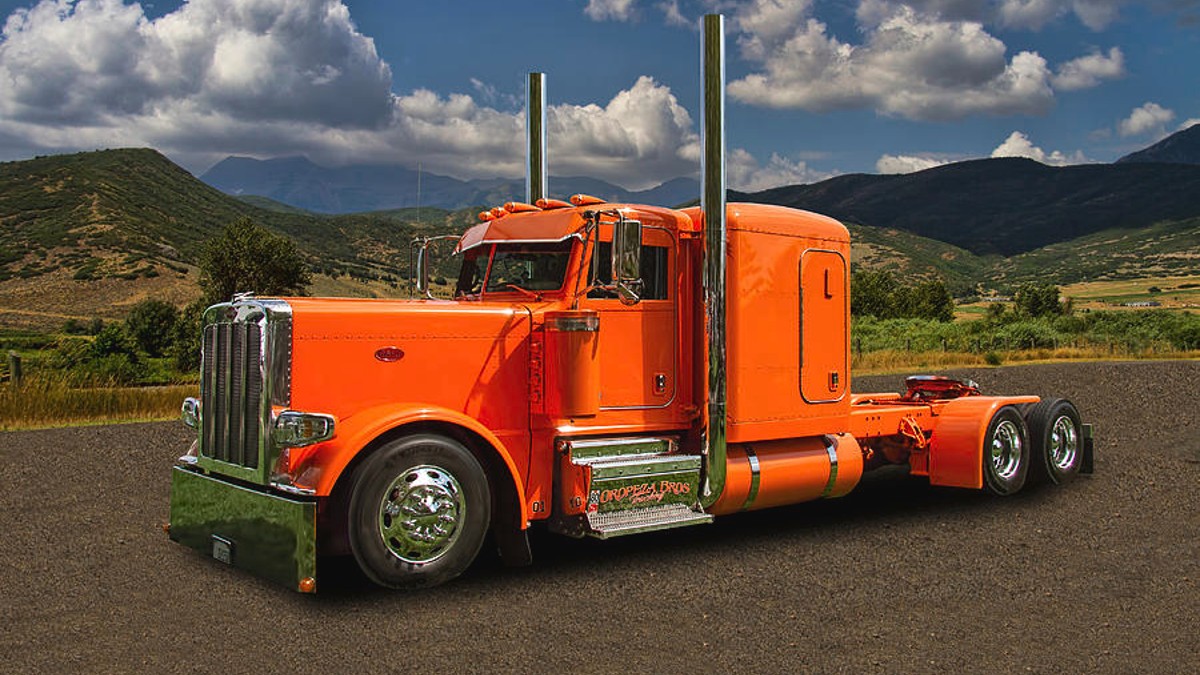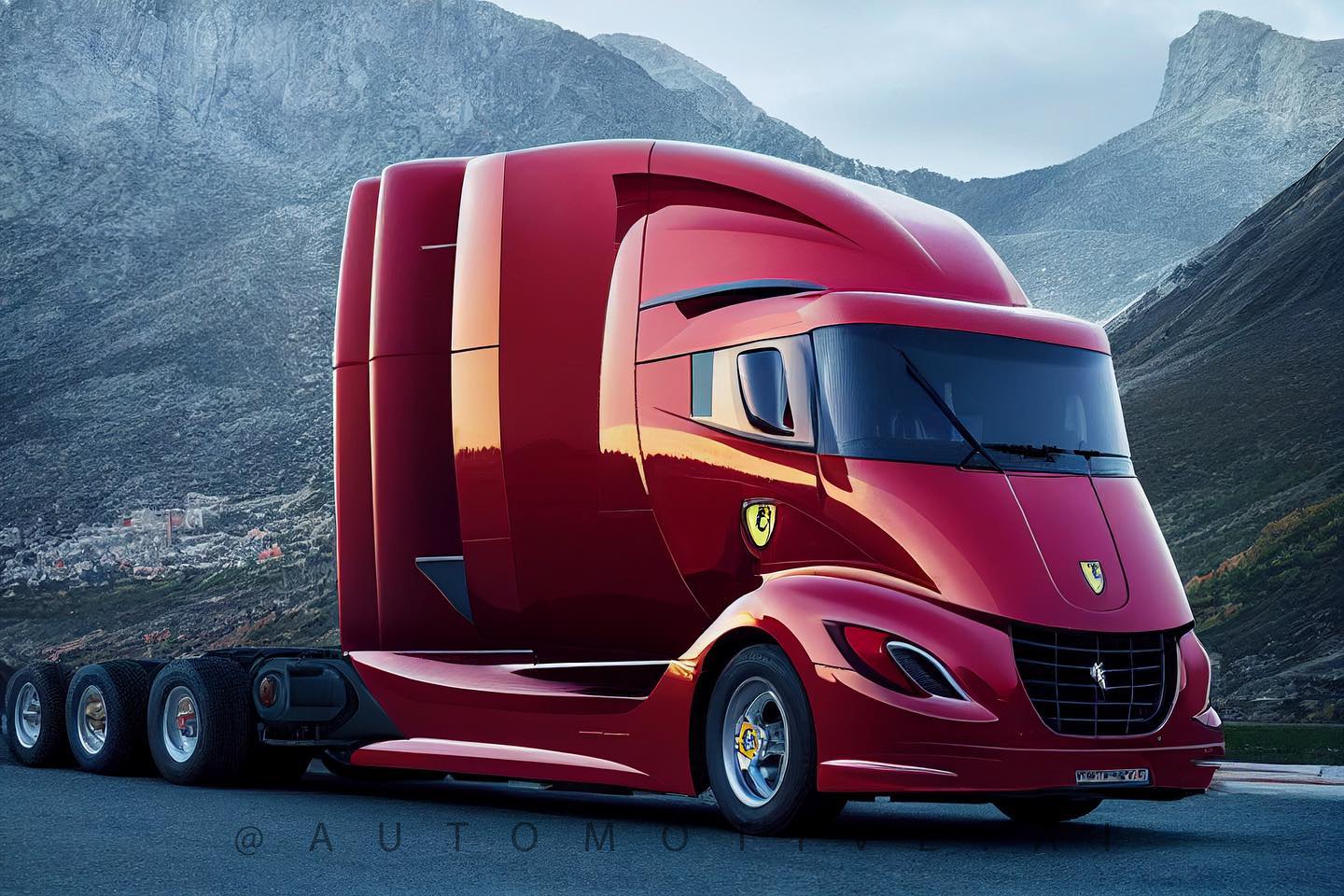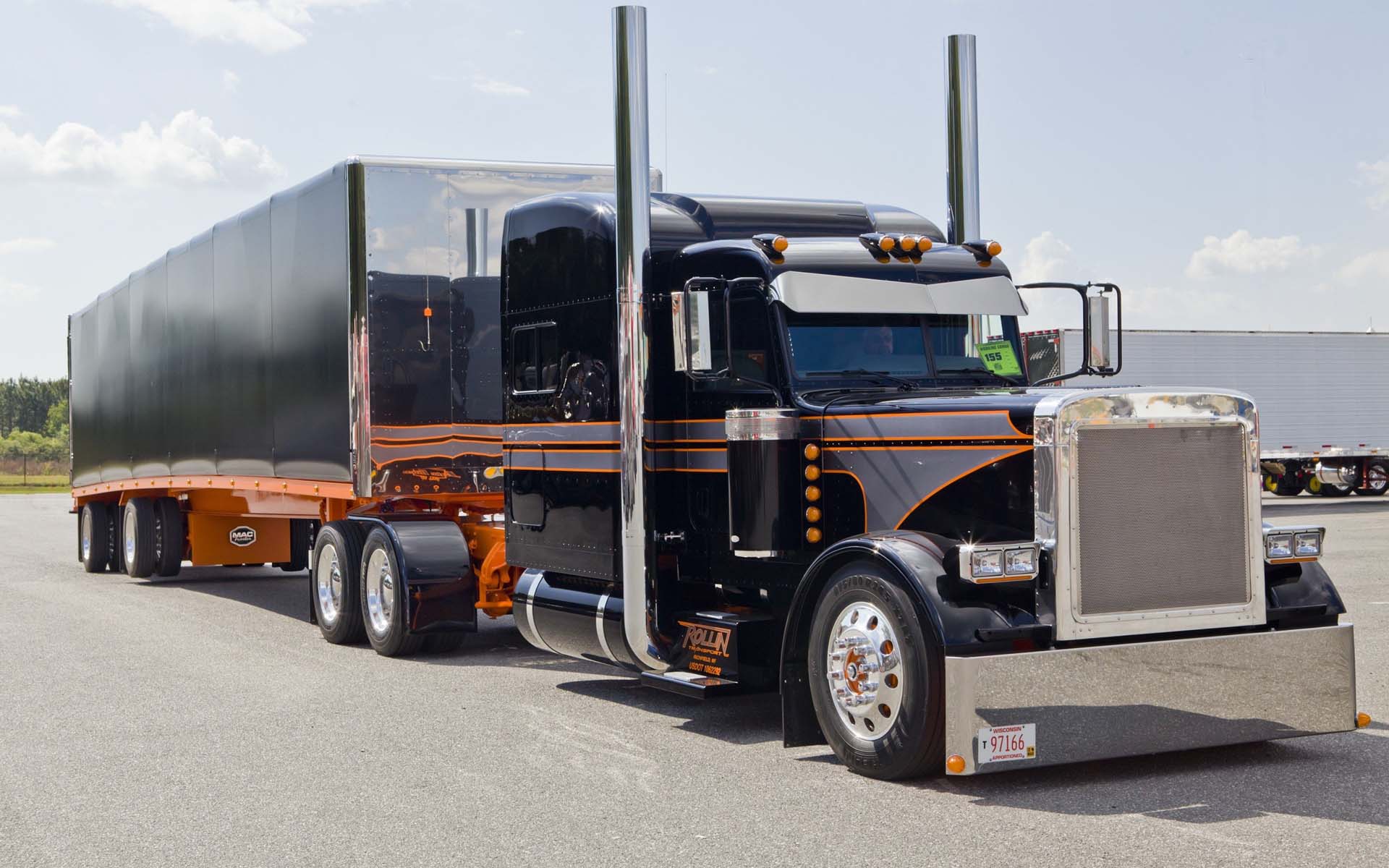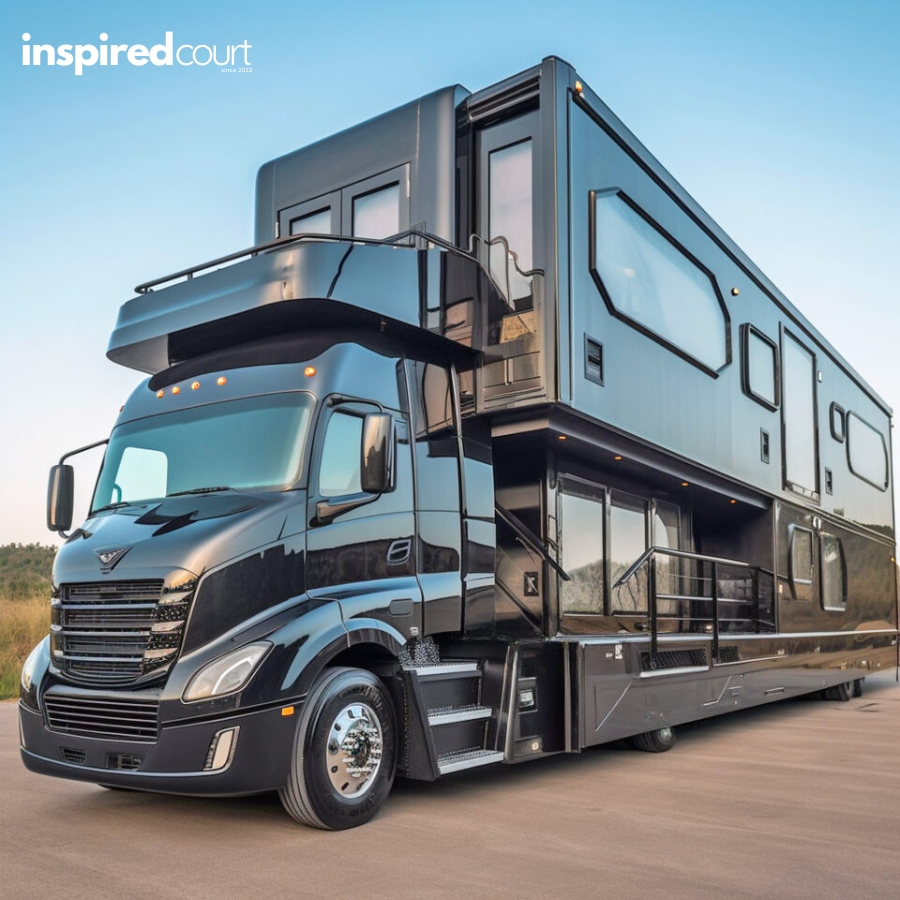Semi Trailer RV: The Ultimate Guide to Residential Freedom types.truckstrend.com
Introduction: Redefining Mobile Living Spaces
Imagine a mobile home that doesn’t compromise on space, durability, or customization. Picture a robust dwelling on wheels, built for the long haul, offering the amenities and comfort of a traditional house. This is the essence of a Semi Trailer RV – a burgeoning trend in the world of recreational vehicles that transcends the limitations of conventional RVs, fifth wheels, and travel trailers.
Semi Trailer RV: The Ultimate Guide to Residential Freedom
A Semi Trailer RV, often referred to as a "semi conversion," "truck conversion," or "heavy hauler RV," is fundamentally a commercial semi-trailer that has been meticulously converted into a fully functional, often luxurious, living space. Unlike smaller RVs designed for weekend getaways, these behemoths are purpose-built for extended travel, full-time living, or housing large families or groups. Their increasing relevance stems from a desire for more living area, the unmatched robustness of commercial-grade construction, and the ability to tow substantial weight, often paired with a powerful semi-truck or a highly specialized heavy-duty pickup. For those dreaming of a life on the open road without sacrificing comfort and stability, the Semi Trailer RV offers an unparalleled solution.
What Defines a Semi Trailer RV?
At its core, a Semi Trailer RV begins its life as a standard commercial trailer – a dry van, a reefer (refrigerated trailer), or even a flatbed that’s been enclosed. These trailers typically range from 40 to 53 feet in length, offering a vast, open canvas for conversion. This distinguishes them sharply from conventional RVs, which are built on lighter, purpose-built RV chassis.
The defining characteristics include:
- Commercial-Grade Construction: Unlike the lighter frames of typical RVs, semi-trailers are engineered to carry tens of thousands of pounds over hundreds of thousands of miles. This translates to an incredibly robust chassis, durable exterior materials (aluminum, steel), and superior longevity.
- Massive Interior Space: With widths typically around 8.5 feet and lengths up to 53 feet, the sheer volume inside a Semi Trailer RV is immense. This allows for full-sized kitchens, multiple bedrooms, large bathrooms, dedicated office spaces, and ample storage, often mirroring the layout and feel of a small apartment or house.
- Heavy-Duty Towing Requirements: Due to their size and weight (often exceeding 26,000 lbs fully loaded), Semi Trailer RVs necessitate a powerful tow vehicle. This almost exclusively means a converted semi-truck (e.g., Volvo, Freightliner, Peterbilt) or a highly capable Class 4/5 pickup truck (e.g., Ford F-450/550, Ram 4500/5500). These tow vehicles offer superior braking, engine power, and often air-ride suspension for a smoother ride.
- Customization Potential: The empty shell of a semi-trailer provides unparalleled freedom for bespoke interior design, floor plans, and integration of specialized systems (e.g., advanced solar, hydronic heating, large water capacities).

The Unrivaled Benefits of Semi Trailer RVs
Choosing a Semi Trailer RV over other mobile living options comes with a host of compelling advantages that cater to specific needs and lifestyles:
- Unmatched Space and Comfort: This is arguably the primary draw. The expansive interior allows for residential-sized appliances, full-height ceilings, walk-around beds, multiple private rooms, and generous living areas. This eliminates the cramped feeling often associated with smaller RVs, making full-time living truly comfortable.
- Superior Durability and Longevity: Built for the demanding world of commercial trucking, these trailers are designed to withstand extreme conditions and constant use. Their robust construction means less flex, fewer structural issues, and a lifespan that far exceeds that of typical recreational vehicles, translating into a lower depreciation rate and a more reliable long-term investment.
- Limitless Customization Potential: Starting with a blank, industrial shell, owners have the freedom to design every aspect of their living space. From high-end finishes and unique layouts to integrating complex off-grid systems or even a dedicated workshop or garage (toy hauler style), the possibilities are virtually endless.
- Ideal for Full-Time Living and Large Families: The sheer size and home-like amenities make Semi Trailer RVs perfectly suited for individuals or families committed to a full-time nomadic lifestyle. They offer the space needed for personal privacy, remote work, homeschooling, and hobbies.
- Exceptional Towing Power and Safety: When paired with a properly converted semi-truck, the towing experience is remarkably stable and powerful. Semi-trucks offer superior braking systems (air brakes), powerful engines, and often air-ride suspensions, providing a smoother, safer, and less stressful towing experience, especially over long distances and challenging terrains.


Key Considerations Before Diving In
While the allure of a Semi Trailer RV is strong, there are crucial factors to consider that impact the feasibility and enjoyment of this lifestyle:
- Towing Vehicle Requirements: This is non-negotiable. A standard pickup truck, even a one-ton, will not suffice. You will need a heavy-duty truck designed for substantial gross combined weight ratings (GCWR). Converted semi-trucks offer the best performance, but come with their own set of maintenance and operational considerations.
- Size and Maneuverability: Navigating a 60+ foot combined rig (truck + trailer) requires skill and practice. Tight turns, city driving, and parking can be challenging. Many traditional RV parks may have length restrictions, necessitating research to find "big rig friendly" accommodations.
- Legality and Licensing: While a Commercial Driver’s License (CDL) is generally not required for personal recreational use, state laws vary. It’s imperative to check the specific regulations in your state of residence regarding weight limits, air brake endorsements, and vehicle classifications. Always adhere to bridge height and weight limits.
- Maintenance and Costs: Both the semi-trailer and the tow truck require specialized maintenance. Semi-truck parts and labor can be more expensive than those for typical consumer vehicles. Fuel efficiency, while varying, will generally be lower than smaller RVs, though the greater carrying capacity can offset this for full-timers.
- Insurance: Finding comprehensive insurance for a custom-built Semi Trailer RV and a converted semi-truck requires specialized policies. Standard RV insurance may not cover the unique aspects of these rigs.
- Campground Accessibility: While many private campgrounds can accommodate large rigs, older or smaller state/national parks often have limitations. Planning your route and booking ahead, specifically inquiring about large rig sites, is essential.
Types and Customization Options
The beauty of Semi Trailer RVs lies in their incredible versatility. While the core concept is consistent, the execution can vary wildly:
- Cargo Trailer Conversions: On the smaller end of the spectrum, these utilize enclosed utility trailers (e.g., 20-40 feet) and are often more budget-friendly. They provide more space than a travel trailer but are less massive than a full semi-trailer conversion, making them slightly easier to tow with a large one-ton pickup.
- Dedicated Semi Trailer Conversions: These are the flagship models, utilizing 40-53 foot dry vans or reefers. They offer the most expansive living areas and are typically towed by converted semi-trucks.
- Luxury Conversions: At the high end, these involve professional builders crafting bespoke interiors with premium materials, smart home technology, advanced climate control, and complex off-grid systems. They can rival luxury homes in terms of amenities and finishes.
- Toy Hauler Configurations: A popular option, these conversions integrate a dedicated garage space at the rear of the trailer for transporting motorcycles, ATVs, side-by-sides, or even a small car. The living quarters are typically in the front section.
- Off-Grid Capabilities: Many owners design their Semi Trailer RVs for extended boondocking. This includes massive solar panel arrays, large battery banks (lithium-ion), extensive fresh and grey water tanks, composting or incinerating toilets, and robust heating/cooling systems.
Practical Advice for Prospective Owners
Embarking on the Semi Trailer RV journey is a significant undertaking, but with careful planning, it can be incredibly rewarding:
- Develop a Detailed Budget: Factor in not just the cost of the trailer and tow vehicle, but also conversion materials (if DIY), professional conversion services, appliances, furnishings, permits, insurance, and an emergency fund. Be realistic about potential overruns.
- Plan Your Layout Meticulously: Before cutting a single piece of wood, design your floor plan. Consider flow, privacy, natural light, and the placement of heavy components like water tanks or batteries to ensure proper weight distribution. Think about how you’ll use each space.
- Choose Your Builder Wisely (If Not DIY): If hiring a professional, research extensively. Look for companies with a strong portfolio of similar projects, positive client testimonials, and transparent pricing. Discuss your vision in detail and ensure they understand the unique requirements of a Semi Trailer RV.
- Prioritize Safety in DIY Conversions: If you’re tackling the conversion yourself, educate yourself on RVIA standards, electrical codes (AC and DC), plumbing best practices, and proper insulation techniques. Structural integrity is paramount. Don’t cut corners on essential systems.
- Master Your Rig: Practice driving your full setup in various conditions before hitting the open road for extended trips. Learn about air brakes, pre-trip inspections, and basic maintenance for both the truck and the trailer. Confidence behind the wheel is key.
- Connect with the Community: Join online forums, social media groups, and attend rallies dedicated to semi-truck conversions and heavy haulers. The collective knowledge and support from experienced owners are invaluable.
Overcoming Challenges and Finding Solutions
While the benefits are numerous, the Semi Trailer RV lifestyle comes with unique challenges:
- Parking and Logistics: Solution: Utilize truck stops for overnight stays, research "big rig friendly" RV parks and campgrounds in advance, explore public lands (BLM, National Forests) where permitted, and learn to disconnect the trailer if needed for tight maneuvers.
- Maintenance and Repairs: Solution: Establish relationships with reputable commercial truck repair shops. Learn basic maintenance tasks yourself. Carry essential tools and spare parts.
- Weight Distribution and Loading: Solution: Understand your rig’s Gross Vehicle Weight Rating (GVWR) and Gross Combined Weight Rating (GCWR). Use a CAT scale to weigh your rig, ensuring axles are not overloaded and weight is distributed evenly to maintain stability and handling.
- Learning Curve: Solution: Be patient with yourself. Start with shorter trips to gain experience. Practice backing up in empty lots. Attend truck driving courses if possible. The learning curve is steep but manageable with dedication.
Estimated Cost Breakdown for a Semi Trailer RV Project
Building a Semi Trailer RV is a highly customized endeavor, making a fixed price table impossible. However, the following table provides an estimated cost breakdown for various components and approaches, offering a comprehensive view of the potential investment. Prices are highly variable based on condition, features, and market demand.
| Item/Service | Low-End Estimate (DIY/Basic) | Mid-Range Estimate (Pro-Assisted/Mid-Grade) | High-End Estimate (Luxury Pro Conversion) |
|---|---|---|---|
| Used Semi-Trailer (Empty) | $5,000 – $15,000 | $10,000 – $25,000 | $20,000 – $40,000+ |
| Used Semi-Truck/Heavy Duty Pickup | $20,000 – $40,000 | $40,000 – $80,000 | $80,000 – $150,000+ |
| Conversion Materials (DIY) | $15,000 – $40,000 | N/A (Included in Pro Service) | N/A (Included in Pro Service) |
| Professional Conversion Services | N/A | $50,000 – $150,000 | $150,000 – $400,000+ |
| Appliances & Furnishings | $3,000 – $10,000 | $10,000 – $30,000 | $30,000 – $100,000+ |
| Solar/Off-Grid Systems | $2,000 – $5,000 | $5,000 – $20,000 | $20,000 – $50,000+ |
| Permits, Inspections, Registration | Varies ($500 – $2,000) | Varies ($500 – $2,000) | Varies ($500 – $2,000) |
| Annual Insurance | $1,000 – $2,000 | $1,500 – $3,000 | $2,000 – $5,000+ |
| Total Estimated Project Cost (Initial) | $46,500 – $112,000+ | $111,500 – $307,000+ | $302,500 – $792,000+ |
Note: These figures are estimates and can fluctuate significantly based on location, material choices, labor rates, and the specific features desired. Ongoing maintenance, fuel, and park fees are additional operational costs.
Frequently Asked Questions (FAQ) about Semi Trailer RVs
Q1: Do I need a Commercial Driver’s License (CDL) to drive a Semi Trailer RV?
A1: Generally, no, if it’s for personal recreational use. Most states exempt recreational vehicles from CDL requirements, even if they exceed the 26,000 lb GVWR threshold. However, you must check the specific laws of your state of residence and any states you plan to travel through, as regulations can vary. An air brake endorsement might be required in some cases if your tow vehicle has air brakes.
Q2: Can I park a Semi Trailer RV at a regular RV park or campground?
A2: It depends. Many older or smaller RV parks and state/national campgrounds have length limits (e.g., 30-40 feet) that a Semi Trailer RV (often 60+ feet combined) will exceed. You’ll need to seek out "big rig friendly" parks, which are increasingly common, or utilize truck stops for overnight stays, or explore public lands (BLM, National Forests) where permitted. Always call ahead.
Q3: How much does a Semi Trailer RV typically weigh?
A3: An empty 53-foot semi-trailer can weigh between 10,000 and 15,000 lbs. Once converted into an RV with all systems, appliances, and personal belongings, the trailer itself can easily weigh 20,000 to 40,000 lbs or more. Add the weight of the semi-truck (20,000-30,000 lbs), and the Gross Combined Weight (GCW) can range from 40,000 lbs to over 70,000 lbs.
Q4: Is a Semi Trailer RV difficult to drive?
A4: Yes, there is a significant learning curve. Driving such a large, heavy rig requires practice, spatial awareness, and understanding of air brakes and wide turns. While it’s not inherently "difficult" once you gain experience, it demands constant attention and skill, especially in urban environments or tight spaces.
Q5: What kind of maintenance is involved with a Semi Trailer RV?
A5: Maintenance is twofold: for the semi-truck and for the trailer itself. The truck requires regular commercial truck maintenance, including oil changes, tire rotations, brake inspections, and occasional specialized repairs. The trailer conversion will need standard RV maintenance (plumbing, electrical, appliance servicing) plus checks on the trailer’s running gear (tires, brakes, suspension). Expect higher maintenance costs than a typical RV.
Q6: How long does a Semi Trailer RV conversion take?
A6: The timeline varies dramatically based on whether it’s a DIY project or professional conversion, and the complexity of the build. A basic DIY conversion might take 6 months to a year of dedicated work, while a luxury professional conversion can take anywhere from 1 to 3 years from design to completion.
Q7: Are Semi Trailer RVs well-insulated for all climates?
A7: They can be, but it depends on the quality of the conversion. Unlike many mass-produced RVs, a custom Semi Trailer RV can be built with superior insulation (e.g., spray foam, rigid foam panels) in walls, ceiling, and floor, making them highly capable of handling extreme hot or cold climates, often better than conventional RVs.
Conclusion: A Path to Unparalleled Mobile Freedom
The Semi Trailer RV represents a unique and powerful niche within the world of mobile living. It stands as a testament to the human desire for space, comfort, and ultimate freedom on the open road. While the journey to owning and operating one demands significant commitment, investment, and a willingness to learn, the rewards are immense.
From the expansive, customizable living areas to the robust durability designed for endless miles, Semi Trailer RVs offer an unparalleled solution for full-time nomads, large families, or anyone seeking a truly residential experience on wheels. They challenge the norms of what a recreational vehicle can be, pushing the boundaries of mobile luxury and self-sufficiency. For those ready to embrace the heavy-hauling lifestyle, the Semi Trailer RV isn’t just a vehicle; it’s a foundation for a life of boundless adventure and uncompromising comfort.
